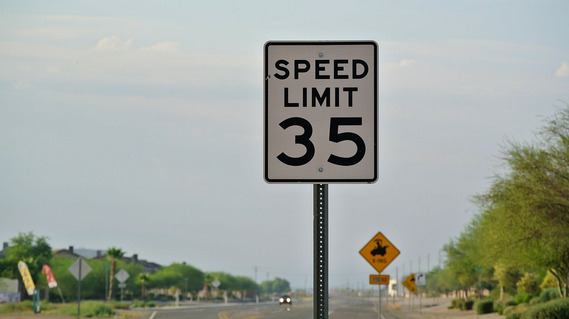Laws don't produce love
The desire to fulfill our own needs conflicts with the desires of the Spirit. The conflicts cause us to battle with the Spirit, born out by our battles with each other, where we harangue and argue over the laws that limit our activities and fence us in. Paul points out that a legal restlessness, without the guidance of the Spirit, will force us to consume each other. Laws to control our behaviors cannot produce love.
Not under the law
http://usccb.org/bible/readings/101216.cfm
Galatians 5:18-25
Luke 11:42-46
“If you are guided by the Spirit, you are not under the law.”
(Galatians 5:18)
What “law” is Paul talking about here? How does being guided by the Spirit make things better than following this law? Is this conversation that important? Clarifications appear to be necessary in order to figure this out.
Paul offers us assistance. In Romans, 8:3-4, though a bit wordy, he breaks down a thoughtful explanation of both the Spirit and the law: “God has done what the law, weakened by the flesh, could not do: by sending his own Son in the likeness of sinful flesh and for the sake of sin, he condemned sin in the flesh, in order that the just requirement of the law might be fulfilled in us, who walk not according to the flesh but according to the Spirit.”
I’m not a defender of sin, but if it’s just me satisfying my own fleshly needs, what difference does that make to everyone else? What laws are weakened by the flesh? What condemnation took place by Jesus regarding sin? Paul’s earlier comment in verses 16 and 17 gets at the issue, and it does not bode well.
“I say, then, live by the Spirit and you will certainly not gratify the desire of the flesh. For the flesh has desires against the Spirit, and the Spirit against the flesh; these are opposed to each other, so that you may not do what you want.”
So, it comes down to not getting to do what we want. What’s so bad about doing what we want? Is that what Jesus condemned? Living by the Spirit acts in direct opposition to doing what we want. That sounds severe. Why would we want to stop doing what we want? If living by the Spirit will not gratify the desires of the flesh, which consumes a very large part of my day, what’s the attraction to go with the Spirit?
Apparently, guided by the Spirit has to do with living in a community, a body of other people. While some folks believe that a power higher than themselves exists, and that power cares for them, by having them all care for each other, a large group of folks don’t accept that at all. I know about this. I am a huge fan of avoiding other people, especially those who don’t accept Jesus. Just like I am annoying to non-believers, the opposite is also true.
And yet, be guided by the Spirit means I must step outside of myself to be with others. Frankly, it’s a painful step, especially for an introvert. Looking closer at what Paul says here, choosing to do what I want may well have produced that introversion. My entire life has been necessarily filled with meeting my own needs, and then periodically getting involved with other folks. Paul points out that the formula of me first and then everyone else lies at the root of not following the Spirit.
If we live with the Spirit of God leading us, we will be dragged into relationship with other folks. Why would a perfectly good life of fulfilling my own desires be worth giving up, just to end up with a bunch of other folks, whom I presume, have the same selfish goals that I have? I love my family, and my friends, but quite often their love fails me, and mine fails them.
The answer keeps coming back to this whole Spirit thing. The desire to fulfill our own needs conflicts with the desires of the Spirit. The conflicts cause us to battle with the Spirit, born out by our battles with each other, where we harangue and argue over the laws that limit our activities and fence us in. Paul points out that a legal restlessness, without the guidance of the Spirit, will force us to consume each other. Laws to control our behaviors cannot produce love.
“For the whole law is fulfilled in one statement, namely, ‘You shall love your neighbor as yourself.’ But if you go on biting and devouring one another, beware that you are not consumed by one another.”
In Romans, the “just requirement of the law” infers that that the law does not go away when we walk in the Spirit. The law only makes sense within the guidance of the Spirit. If understood only in the flesh, the law doesn’t accomplish anything. Since the Spirit operates in contrast to the flesh, both the flesh and the law need to be subject to the Spirit. Love flows from the Spirit, and not from the law or the flesh.
The function of the flesh, though, doesn’t go away any more than the law goes away when we live in the Spirit. We need to eat, procreate, travel, and so on. Under the guidance of the Spirit, we avoid the fruits of the flesh of which there are many — “… immorality, impurity, licentiousness, idolatry, sorcery, hatreds, rivalry, jealousy, outbursts of fury, acts of selfishness, dissensions, factions, occasions of envy, drinking bouts, orgies, and the like.”
The fruits of the Spirit are, “love, joy, peace, patience, kindness, generosity, faithfulness, gentleness, and self-control.” That’s a much better list.
All well and good, but the concept of shifting our focus to being guided by the Spirit seems difficult, if not incomprehensible, to put into practical use. The application of walking according to the Spirit, while fending off fleshly legalism, doesn’t sound attainable. In fact, this is the best way to live, and most of us know it, regardless of our upbringing or lapses in judgment.
Driving a car may serve as a metaphor to better understand the Spirit/law and Spirit/flesh alignment that Paul talks about. Almost all of us are familiar with automobiles, roads, and the mechanics and skills of driving. Participating in the realm of cars and trucks describes how we already are used to living guided by the Spirit rather than under the burden of the law.
To operate fully and completely under the burden of the driving laws, for instance, we should hold our vehicle at exactly 35 miles per hour when the posted speed limit says so. It’s not easy to do. When we see a sign changing the limit to 25 mph, we should (thinking legalistically) apply the brakes immediately to drop the required 10 miles per hour just as we reach the sign. Not only would we look ridiculous doing this, our car parts would strain from this constant speed limit trauma. Instead, we slow down. We don’t just slam our brakes. If we don’t slowly change speeds, rather than abruptly drop our speed, a driver behind us may not be able to react in time. That is, unless all drivers followed our burdened, exact interpretation of following the law; and all automobiles were built to sustain erratic operation.
There’s the rub. Until automated self-driving vehicles own the roadways, perfectly following the rules of the road, everyone needs to drive according to the same legal, over-burdened attention to the detail of the law in order for the most severe understanding of the law to work. Over time, we get pretty good, actually, at approximating this legalism. It’s usually when we have inexperienced drivers, imbibed drivers, distracted drivers, and aged drivers getting behind the wheel that things go wrong. We wrote laws to keep them off the road, or at least inhibit them from causing problems. Still, the law can’t completely fix the problem.
Not everyone obeys the laws, even the most simple and logical ones.
Further, as an example, in order to maintain the rule of “two hands on the steering wheel at all times,” drivers cannot properly accomplish the use of lane-changing blinkers. So, we modify the law, in general, when we do use our blinkers, or shift gears. We also tinker with the radio, adjust the heat/cooling, and reach up to align the rear view mirror. Two hands on the steering wheel cannot be a hard and fast rule.
A law won’t address all circumstances. Nor can subsequent and complicated adjunct laws be devised to fix all problems. We have seat belt laws, hand-held device laws, tinted window laws, lane passing laws, and now a new law forcing the removal of snow off the roof of your car (in addition to chain laws, tire tread laws, and broken windshield laws).
How does driving serve as a metaphor for being guided by the Spirit? Driving guided by the Spirit brings a spiritual relationship into our midst, and is especially helpful when the roads are filled with folks guided by the Spirit. Being guided by the Spirit does not allow us to abandon the rules of the road, or the functional use of the vehicle we are driving. We always need to heed the speed limits, slow down when the light changes yellow, consider the safe distance between our vehicles, turn on our headlights at night, watch our dashboard gauges, and so on.
Being under the Spirit, though, allows us to exhibit peace at rude drivers rather than rage. When a vehicle needs to merge, a Spirit-based driver displays kindness, generosity and patience in letting that person in. The merging driver is not a rival, but a member of the body.
Spirit-based drivers do not drink or smoke pot when the drive. They do not engage in drive-by shootouts. SUVs, muscle cars, and older gas-guzzling sedans don’t project defiance and waste to a person guided by the Spirit. These are vehicles, not persons. A vehicle is not something to be idolized or abused. Gentleness and self-control are the marks of a person driving under the influence of the Spirit of God.
Where does the Spirit actually intercede, or supersede the law? Frankly, at all times.
When obstructions lie in the roadway, they are just like sin. In the face of dangerous potholes and junk in the road, a Spirit-based person exercises caution. Much of the time, regular traffic patterns must adjust to constant circumstances. Depending upon the nature of the obstruction, we may just drive around it, certain (or hopeful) that others will also see it. Or, we may be compelled to put on our flashing emergency lights and warn both oncoming traffic and those behind us. We might even move the obstruction out of the way, disrupting our plans for the day, and putting ourselves in danger.
To belong to Jesus, guided by the Spirit, necessarily puts us in harm’s way just like any other person engaged in life’s path. We engage with others not just out of necessity, but in order for the just requirements of the law displayed through love. How have we been trained, and how have we continued to train ourselves? If we are under the law, the broken world will send us into a rage, or into retreat. We will claim love is impossible. If we live by the flesh, we will push the boundaries of the law to our advantage, stepping over others, grasping at everything we can to fill our need for what we mistakenly believe is love.
If we live by the Spirit, we will be loved, and we will love. The law will be fulfilled in us.

